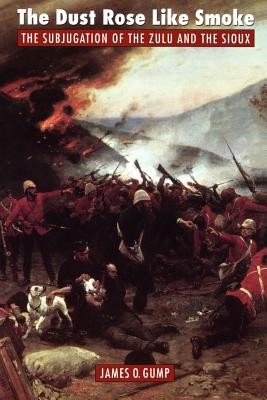
- We will send in 10–14 business days.
- Author: James O Gump
- Publisher: University of Nebraska Press
- ISBN-10: 0803270593
- ISBN-13: 9780803270596
- Format: 15.7 x 24.4 x 1.3 cm, softcover
- Language: English
- SAVE -10% with code: EXTRA
Reviews
Description
In 1876 Sioux and Cheyenne warriors annihilated Custer's Seventh Cavalry on the Little Bighorn. Three years later and half a world away, a British force was wiped out by Zulu warriors at Isandhlwana in South Africa. In both cases the total defeat of regular army troops by forces regarded as undisciplined barbarian tribesmen stunned an imperial nation. The similarities between the two frontier encounters have long been noted, but James O. Gump is the first to scrutinize them in a comparative context. "This study issues a challenge to American exceptionalism," he writes. Viewing both episodes as part of a global pattern of intensified conflict in the latter 1800s resulting from Western domination over a vast portion of the globe, he persuasively traces the comparisons in their origins and aftermath.
EXTRA 10 % discount with code: EXTRA
The promotion ends in 19d.23:14:15
The discount code is valid when purchasing from 10 €. Discounts do not stack.
- Author: James O Gump
- Publisher: University of Nebraska Press
- ISBN-10: 0803270593
- ISBN-13: 9780803270596
- Format: 15.7 x 24.4 x 1.3 cm, softcover
- Language: English English
In 1876 Sioux and Cheyenne warriors annihilated Custer's Seventh Cavalry on the Little Bighorn. Three years later and half a world away, a British force was wiped out by Zulu warriors at Isandhlwana in South Africa. In both cases the total defeat of regular army troops by forces regarded as undisciplined barbarian tribesmen stunned an imperial nation. The similarities between the two frontier encounters have long been noted, but James O. Gump is the first to scrutinize them in a comparative context. "This study issues a challenge to American exceptionalism," he writes. Viewing both episodes as part of a global pattern of intensified conflict in the latter 1800s resulting from Western domination over a vast portion of the globe, he persuasively traces the comparisons in their origins and aftermath.


Reviews